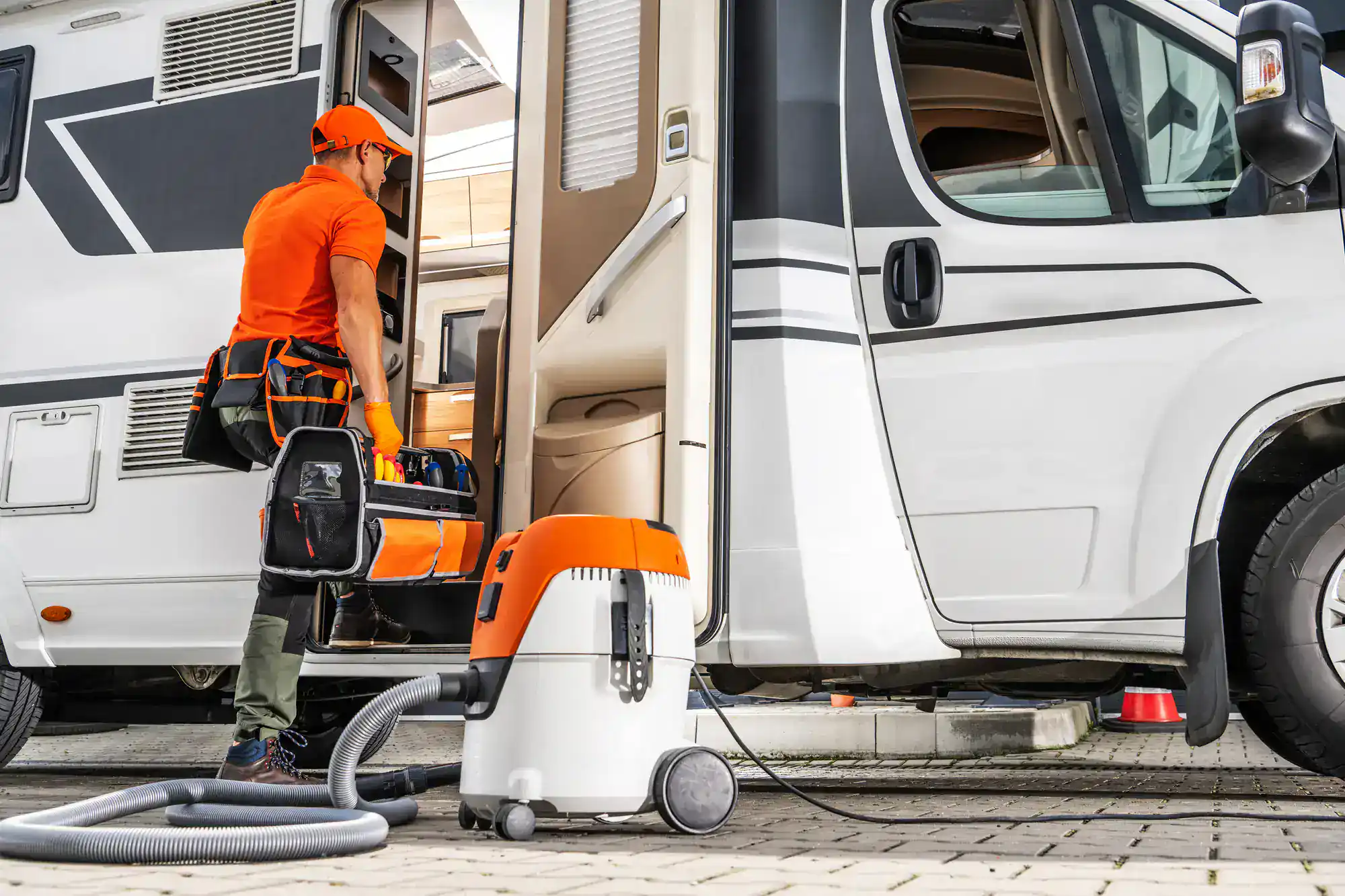
Hear from Our Customers
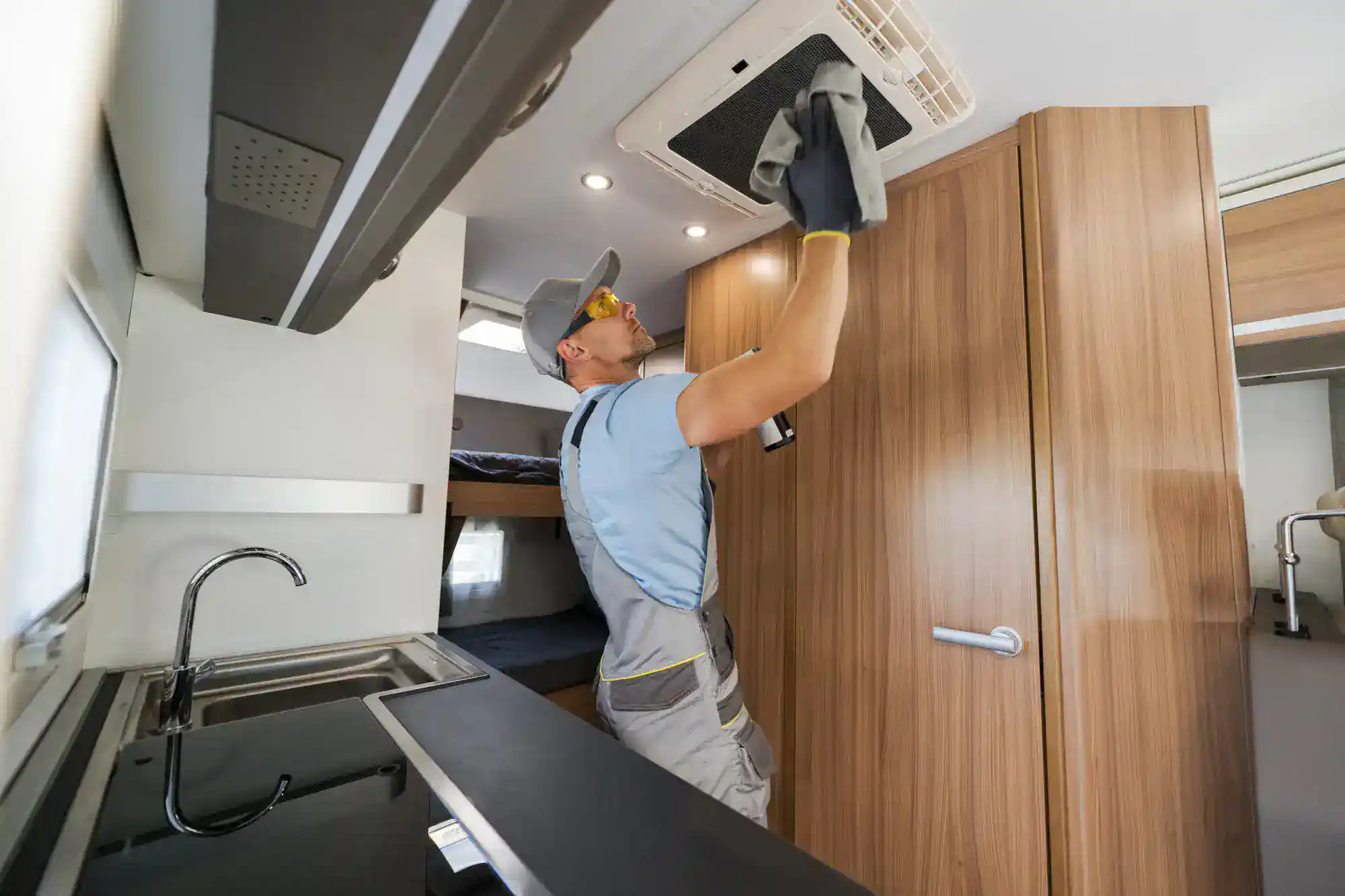
That water stain on your ceiling isn’t going away on its own. Neither is the soft spot you felt near the bathroom vent. What starts as a small roof issue becomes expensive fast when water reaches your walls, wiring, and flooring.
We fix roof problems while they’re still roof problems. Our repairs stop leaks at the source, prevent structural damage, and save you from the nightmare of gutting your RV’s interior. You get back to camping instead of dealing with insurance claims and major reconstruction.
The difference between a $500 repair and a $5,000 disaster often comes down to catching it early. We help you catch it early.
We’ve been serving North Carolina RV owners from our Creedmoor location for years. We’re not a general repair shop trying to figure out RVs. We work on Forest River, Keystone, Jayco, Heartland, Dutchmen, Coachmen, Grand Design, and other major brands every day.
Our fully licensed and certified technicians understand how North Carolina’s humid summers and unpredictable weather affect RV roofs. We’ve seen what happens when moisture sits too long in our climate, and we know exactly how to fix it right the first time.
Located just 25 minutes from Raleigh, Durham, and Chapel Hill, we’re close enough for convenient service but far enough out to avoid big-city overhead costs.
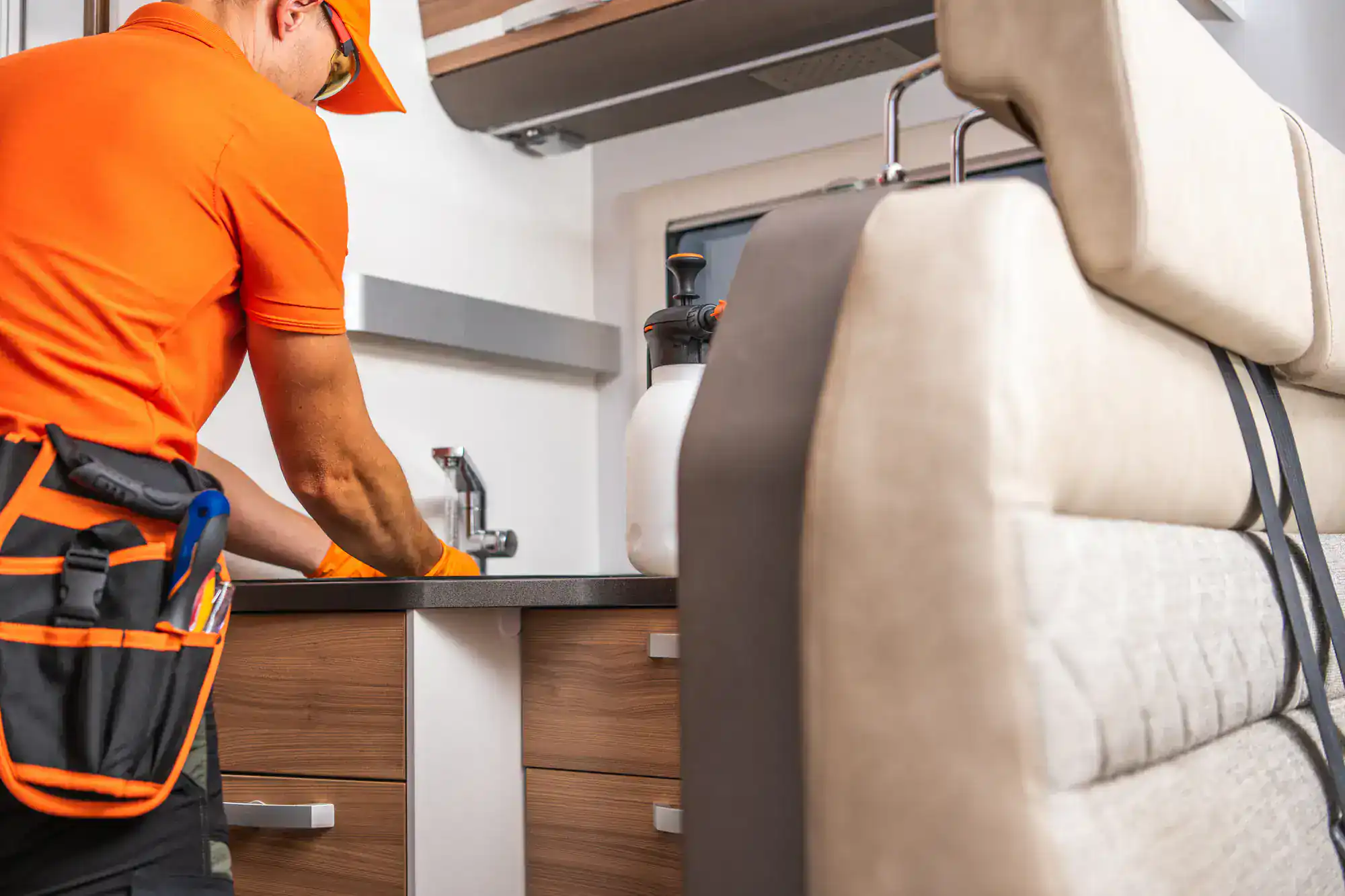
We start with a thorough inspection to find the real problem, not just the obvious symptoms. Many roof leaks show up in one spot but start somewhere else entirely. We trace the water path and identify every affected area.
Next, we give you a straightforward assessment. If you need a simple seal repair, we tell you that. If water damage has spread and you need more extensive work, we explain exactly what’s involved and why. No surprises, no upselling.
Our repairs use quality materials designed for RV roofs and North Carolina weather. We work efficiently to minimize your downtime, but we don’t rush the job. When we’re done, your roof is sealed properly and ready for whatever weather comes next.
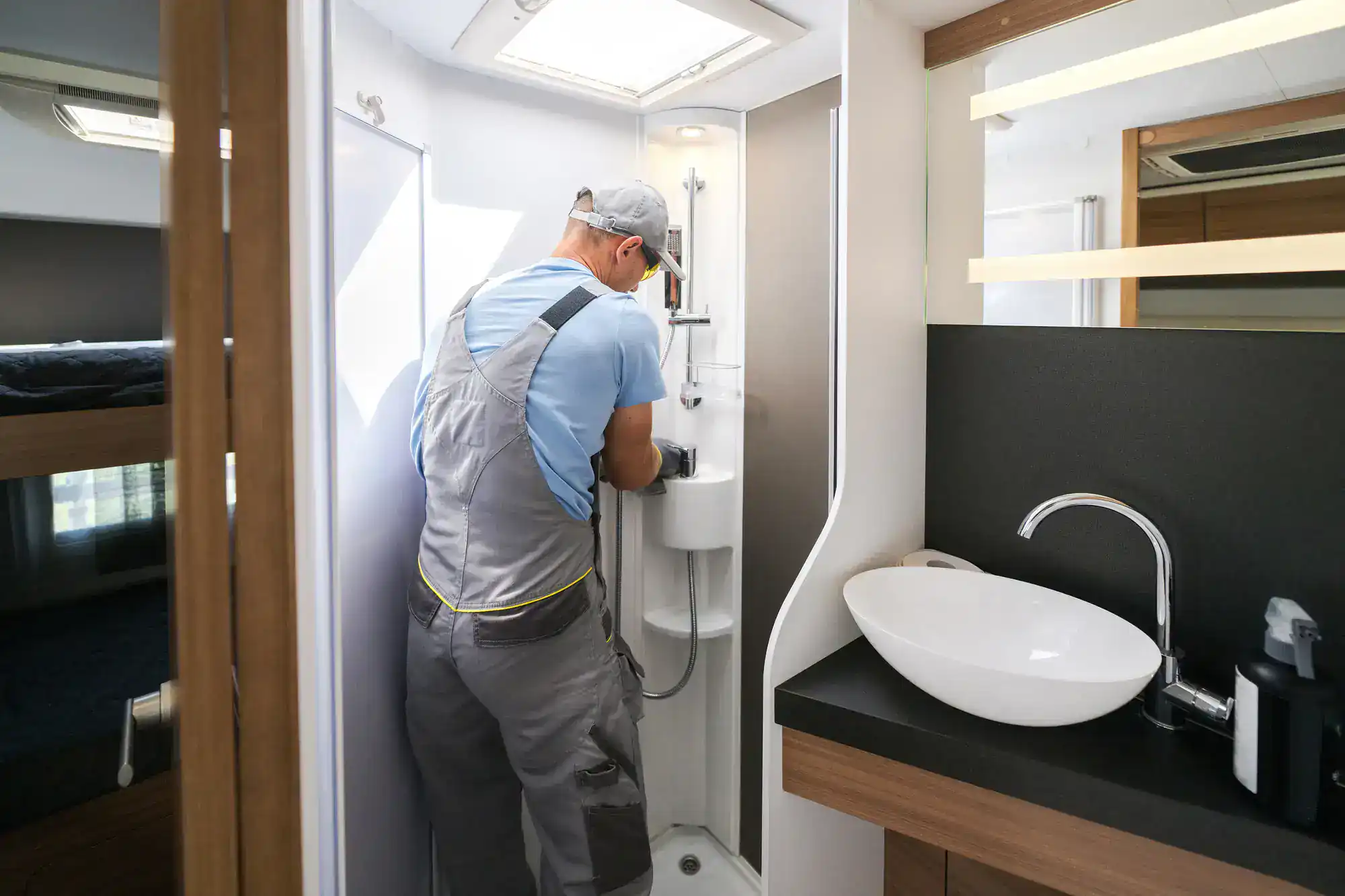
Ready to get started?
Our roof repair service covers leak detection, seal replacement, membrane patching, and structural repairs when water damage has spread. We handle everything from simple caulk refreshing to complex repairs involving decking replacement.
In North Carolina’s climate, RV roofs face unique challenges. Our humid summers cause seals to deteriorate faster, while temperature swings make materials expand and contract. We use products and techniques that work specifically in our regional conditions.
We also work directly with insurance companies when your roof damage qualifies for coverage. Whether it’s storm damage, tree impact, or manufacturing defects still under warranty, we handle the paperwork and communication to make your claim process smoother.
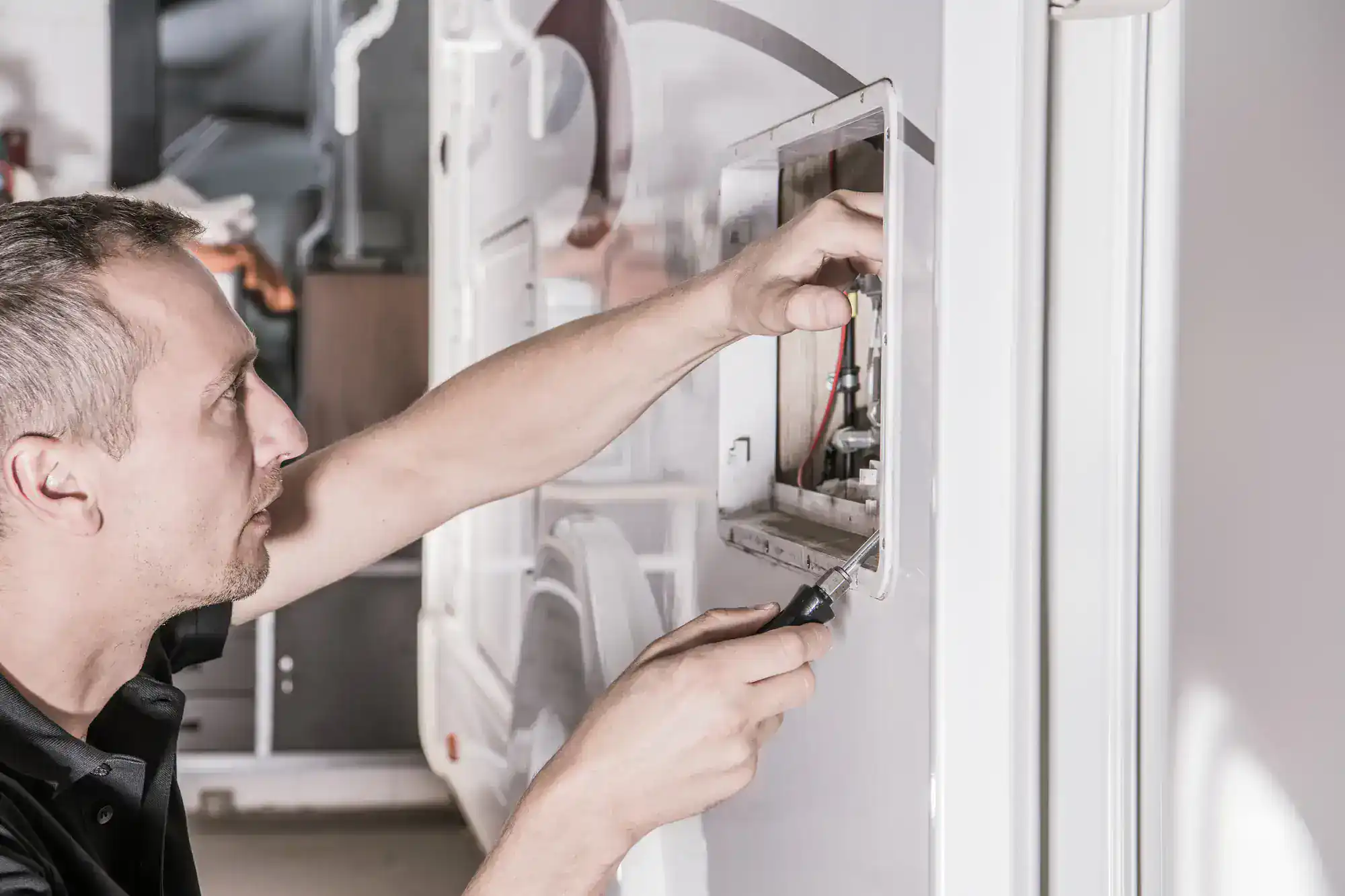
Small repairs like resealing vents or patching minor tears typically cost $300-$800. More extensive repairs involving water damage or structural issues range from $1,500-$4,000. Full roof replacement runs $5,000-$12,000 depending on your RV size and material choice.
The key factor is catching problems early. A $500 seal repair today prevents a $5,000 interior reconstruction later. We always start with an honest assessment of what actually needs fixing versus what can wait.
North Carolina’s humid climate makes early intervention especially important since moisture spreads quickly once it gets inside your roof system.
Seal failures around vents, air conditioners, and antenna mounts are the biggest culprits. North Carolina’s humidity and temperature swings cause sealants to crack and shrink, creating entry points for water.
We also see a lot of membrane punctures from tree branches, especially on RVs stored under trees or traveling through wooded campgrounds. These start small but grow quickly if not addressed properly.
Hidden corrosion is another issue specific to our climate. Metal components can rust underneath seals where you can’t see the damage until it’s spread to surrounding materials. Regular inspections catch these problems before they become expensive.
Simple repairs like resealing vents or applying patches usually take 1-2 days, depending on curing time for materials. More complex repairs involving structural work or multiple problem areas can take 3-5 days.
Weather affects timing since many roof materials need dry conditions to cure properly. We schedule repairs during favorable weather windows and keep you informed about any delays.
Emergency repairs to stop active leaks can often be completed same-day or next-day to prevent further damage. We prioritize getting your RV weather-tight quickly, then schedule any follow-up work needed.
Yes, we work on rubber membrane (EPDM), fiberglass, aluminum, and TPO roofs. Each material requires different repair techniques and products, which is why experience with RV-specific roofing matters.
Rubber roofs need specialized adhesives and patches that bond permanently. Fiberglass requires gel coat matching and proper surface preparation. Metal roofs often need rivets resealed and corrosion treatment.
We stock materials for all common RV roof types and can usually complete repairs without waiting for special orders. Our technicians are trained on the specific requirements for each roof material.
Absolutely. We provide detailed damage assessments and repair estimates that insurance adjusters need for claim processing. We document everything with photos and explain exactly what caused the damage and what’s needed to fix it properly.
Storm damage, tree impacts, and manufacturing defects are often covered by insurance or warranty. We help you understand what documentation is needed and communicate directly with your insurance company throughout the process.
For warranty work, we’re familiar with requirements from major RV manufacturers and can coordinate repairs that maintain your coverage. We handle the paperwork so you can focus on getting back to camping.
Annual inspections are your best defense, especially before and after camping season. We check all seals, look for wear patterns, and catch small issues before they become big problems.
Keep tree branches away from your roof during storage and travel. Even small scratches in roof membranes can become major leaks over time. Clean your roof regularly to prevent buildup that can hide developing problems.
In North Carolina’s climate, pay attention to seals around roof accessories after hot summers. Heat cycles cause materials to expand and contract, which can create gaps. Quick resealing prevents water intrusion during our heavy rain seasons.